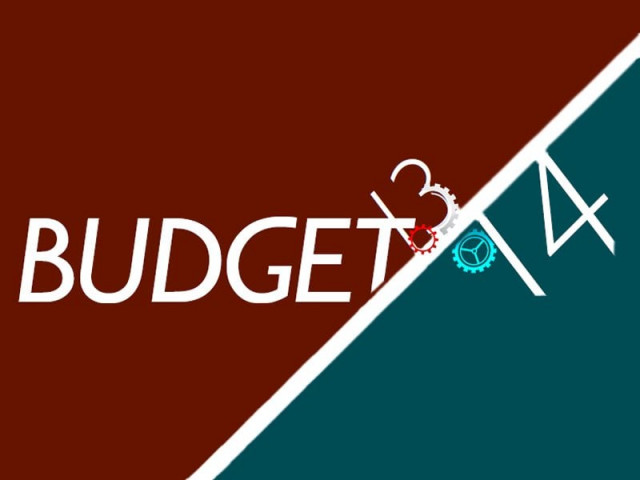Budgeting for fiscal 2013-14: a magic wand perhaps?
Indirect taxes are hard to evade, but they are regressive in nature, and affect those with lesser incomes unfairly.

There was no attempt to bring agricultural income under the tax net. Given that this sector makes up over 21 per cent of GDP, the continuing inability of governments to tax it is both inexplicable and foolish. PHOTO: FILE
One wonders what kind of magic wand the new government possesses that allows it to set a resource availability estimate for 2013-14 of Rs3.01 trillion – meaning that it believes that it will be able to make available over a trillion rupees worth of resources. Whether it will actually be able to do this is something that the coming year will show quite clearly, and the new government will be under close watch.

One should take a closer look at how the economy was run during the outgoing year 2012-13 since it will have to be run in an entirely different manner for 2013-14 if the government is to achieve its revenue collection target.
For instance, the previous government set a bank borrowing target of Rs483.8 billion for 2012-13 – but the actual amount that it ended up borrowing was a staggering Rs1.575 trillion (overshooting its own bank borrowing target by over 200 per cent). Here too the target set for 2013-14, of Rs975 billion, seems unrealistic given that it is over 600 billion rupees lower than the figure for the outgoing fiscal year.
Similarly, in 2012-13 tax collected was Rs379 billion less than the target set by the government, which means that for 2013-14, with an ambitious tax revenue goal set by the new government it will have to exhibit considerable perseverance and political will to achieve it.
This will mean a thorough revamp of the Federal Board of Revenue so that existing and new taxes can be collected, and that the abysmally small tax net is widened to include all tax evaders. Unfortunately, the government has chosen to take the easy way out by deciding to increase the sales tax by one percentage point.
This may be a relatively easier option since indirect taxes are much harder to evade, but the fact is that they are regressive in nature, and affect those with lesser incomes disproportionately. The reason being that the amount they pay in tax is the same that someone with a much higher income pays and hence the tax burden on the poor is far higher.
A more equitable approach would have been to widen the tax net to include the millions of affluent Pakistanis who evade paying even a single rupee in tax every year. Furthermore, there was no attempt whatsoever to bring agricultural income under the tax net. Given that this sector makes up over 21 per cent of GDP, the continuing inability of governments to tax it is both inexplicable and foolish.
As for defence spending, it has been set at Rs627.226 billion (which rises to Rs759.954 billion if military pensions are included) for 2013-14. Compare this with the measly Rs1.806 billion set aside for social protection, and the meagre Rs924 million for environment protection. This shows the complete lack of priorities that successive governments have placed on issues that affect ordinary people. It also reflects the control that the establishment has over spending allocations in what is decidedly still a Third World country and whose inhabitants desperately need social sector development spending. Of course, there is a particular lobby which will criticise any attempt to pare down, or even keep defence expenditures at current levels, saying that Pakistan can ill-afford to do so given that it has India to its east and Afghanistan to its west and Americans always present in the region. This argument is not entirely without its merits but the issue is of nuance – and it could be argued, one believes cogently, that how much defence spending, say how many nuclear-capable missiles are really necessary to achieve a minimum credible deterrence. After all, having 50 warheads may mean the same kind of deterrence as having a hundred or more.
Published in The Express Tribune, June 13th, 2013.
Like Opinion & Editorial on Facebook, follow @ETOpEd on Twitter to receive all updates on all our daily pieces.















COMMENTS
Comments are moderated and generally will be posted if they are on-topic and not abusive.
For more information, please see our Comments FAQ